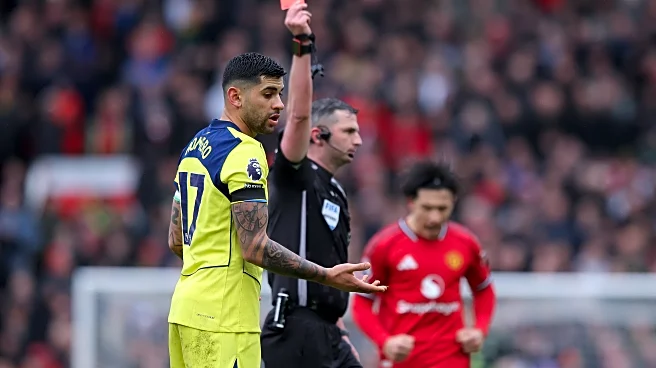What's Happening?
A report by Common Sense Media highlights the challenges young boys face due to online content promoting restrictive masculinity and gender roles. The report surveyed 1,017 boys aged 11 to 17, revealing that exposure to such content is linked to feelings of isolation, anxiety, and low self-esteem. Boys frequently encounter messages about making money, building muscle, and using weapons, which can negatively impact their mental health and self-perception. Schools are encouraged to take steps to educate boys about these online influences, model healthy male behaviors, and support boys in managing complex emotions. Suggestions include enhancing digital literacy courses, fostering discussions about identity and emotions, and establishing mentorship programs with positive male role models.
Why It's Important?
The exposure to problematic masculinity content online is contributing to a decline in boys' mental well-being, with many reporting loneliness and low self-esteem. This issue is significant as it affects boys' ability to form authentic relationships and engage in education. Schools play a crucial role in countering these negative influences by providing a supportive environment where boys can learn to critically assess online content and develop healthier self-perceptions. Addressing this crisis is essential for preventing disengagement from education and promoting emotional well-being among young men, which can have long-term benefits for society.
What's Next?
Schools are advised to review and potentially expand their existing programs to better address the unique challenges boys face due to social media influences. This includes integrating lessons on digital literacy and citizenship, discussing male characters' emotional management in literature classes, and ensuring anti-bullying programs address boys' specific needs. Establishing mentorship programs with strong male role models is also recommended to guide boys towards healthier masculinity. These initiatives require resources and policy changes but promise significant returns in terms of improved student engagement and mental health.
Beyond the Headlines
The report suggests that boys have not lost their capacity for empathy or emotional connection but are receiving conflicting messages that challenge these qualities. Educators are positioned to model a broader, healthier version of masculinity, helping boys to be their full and real selves. This approach not only supports individual well-being but also fosters a more inclusive and understanding school environment, potentially leading to broader societal shifts in perceptions of masculinity.











